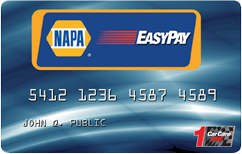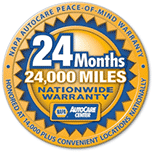Independent auto repair shops and do-it-yourselfers everywhere are celebrating a win regarding the right to repair legislation. In a quiet but impactful legal victory 12+ years in the making, franchise and independent auto repair shops beat out the auto manufacturers and their service centers for the right to perform auto repair. This is big news for non-dealership auto repair shops in San Diego and across the country.
So what exactly is the Right to Repair bill? It’s much different then what it sounds like and doesn’t have much to do with the California Lemon Laws. Rather, drivers and auto enthusiasts everywhere have long assumed they have the right to perform automotive repair on their own trucks, cars and SUVs. Yet with the complexities of modern vehicles and shielded auto diagnostic codes, performing routine fixes at home has become more difficult. Not only were DIYers having a hard time obtaining these codes but so were independent auto repair shops. Even large-scale auto repair, oil change and auto parts franchises were having difficulty obtaining auto manufacturers’ diagnostic codes.
Auto Repair Today Requires More than a Wrenches, Ratchets and Sockets
Why have some auto companies been reluctant to share these codes? Well, without these computerized diagnostic codes, the dealerships and their service centers would have a huge advantage over all repairs for modern vehicles. Some consumer advocates groups have gone so far as to call it a monopoly. The automakers, however, claimed that sharing the codes would to independent auto repair shops and even these franchises would put too much of a financial burden on their business. They believe that sending out code updates would be too time consuming and costly.
Yet finally with much negotiations and legal maneuvering, the automakers agreed to put forth standardized diagnostic codes for use by all. The deal also makes clear the standardization of these codes across all 50 states, which was one of the heavily debated issues. So now the diagnostic auto repair codes are the same in California as they are in Illinois to keep things simple.
Indy Auto Repair Shops Can Now Demand the Codes
The passed legislation is good news for both indie auto repair shops and consumers as it helps ensure competition. Not only does this mean better auto repair pricing and cost but it means that you can get the same or better car repair experience from an independent auto shop. Having more diverse choices for auto service benefits everyone.
Experts familiar with the automotive industry do acknowledge that the deal may not be good for dealerships in the long-term, particularly for specialty item repairs. So let’s say for example an uncommon dashboard light comes on in your car, such as the Power Steering Warning Light or Malfunction Indicator Light. You might normally be tempted to take your vehicle to the dealership because you think it is a manufacturer-specific problem. Perhaps an independent repair shop wouldn’t be able to properly diagnose or repair this issue.
The Dealership No Longer Holds the Only Key to Specific Auto Repair
Thanks to this new bill, you no longer have to bring your vehicle to the specific automaker’s dealership. Chain and local auto repair shops can now have access to these computer diagnostics so they can tell you what’s wrong with the car and what needs to be done to fix it.
Moving forward the situation looks even better for non-dealership auto repair shops. Vehicles manufactured in or after 2018 will be required by law to use a standardized computer system that can be accessible to all mechanics wherever they work.
Moreover, these standardized systems are required to operate using a normal computer with secured internet access so information can be shared easily using something as ordinary as a USB connection. Automakers cannot require other auto repair centers to purchase special gadgets or gear in order to obtain these codes. In addition to sharing these codes, parts and specialized repair tools used by dealerships will now be readily available to auto repair shops in aftermarket sales. So basically, you’ll never feel forced to go to the dealership again for a specific type of auto repair.
The Bill Puts Car Repair Practice into Law
This law is really putting power and standardization behind what has been in practice for many manufacturers for several years. A number of auto companies have already made available specific tools and training for chain and independent auto repair shops should they seek it out. This has been a common practice across the larger industry for the purposes of competition and good will.
Yet some auto manufacturers do not have a record of sharing as well as others, particularly many German and some Japanese automakers. These manufacturers were known for sharing incomplete information or for taking their time getting the information out. Now, in many ways, this law just forces the hand of reluctant automakers and secures what for years has been a common industry practice.






